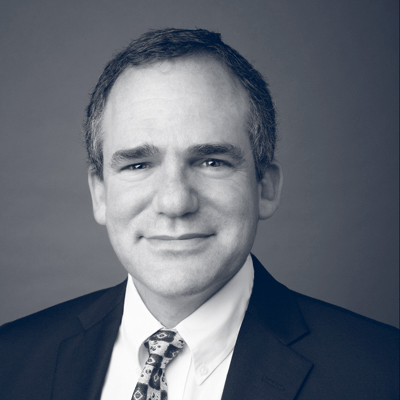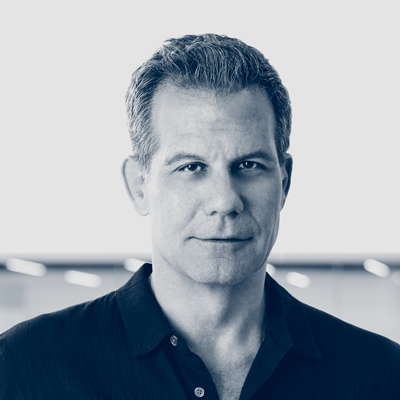Topics
MIT SMR Strategy Forum
We asked our panel of strategy experts to tell us how strongly they agree with this statement:
Amazon’s new $15 per hour minimum wage will force other companies to follow suit.
■
Raw Responses
■
Responses weighted by panelists’ level of confidence
Panelists
| Panelist | Vote | Confidence | Comments |
|---|---|---|---|

|
Agree | 10 | “Sure. But the question is how many others? And how fast? And what will they take back with the other hand as they raise wages?” |

|
Disagree | 8 | “Amazon’s move will help to persuade other firms to follow suit, but it won’t force them — only a tightening labor market will do that.” |

|
Disagree | 8 | “This move by Amazon will likely prompt some companies to raise wages if (and only if) they are close competitors in the relevant labor market. However, the impact will be quite localized and, since A...mazon already pays significantly above the federally mandated minimum, there will be negligible impact on most minimum-wage workers and the companies that employ them.”Read More + |

|
Disagree | 2 | “The labor markets in which Amazon offers $15 per hour are not constrained in supply.” |

|
Agree | 8 | |

|
Agree | 7 | “The word ‘force’ is too strong, but employers do need to meet the competition when they offer wages. More importantly, it also sends a visible signal and symbol that will affect perceptions of what a... fair wage is. That said, the effect will be small for any one firm, even a big one like Amazon.”Read More + |

|
Disagree | 7 | “Amazon may pitch its new policy as ‘doing the right thing,’ but those headlines don’t disentangle benevolence and a firm’s push to get out ahead of a tightening labor market. After all, turnover may ...be costly for Amazon — especially if automation has already replaced some of its lowest-skilled workers. Other firms may follow the changing labor market more than they follow Amazon’s policies.”Read More + |

|
Agree | 7 | “Amazon is one of the GAFAM ‘internet monopolies’ with an enormous market valuation and pays its skilled employees well. They are viewed as a big source of income inequality, so visibly paying a high ...minimum wage is both virtuous and good PR. I would expect similarly situated companies — GAFAMs and companies with respected consumer brands — to follow suit.”Read More + |

|
Disagree | 6 | “Amazon is active in too few local labor markets to have a big impact.” |

|
Disagree | 6 | |

|
Disagree | 7 | “Amazon, while an important employer in some localities, is not as important for the entire labor market. This will allow them to select better employees more than [it will have any] additional market... effects.”Read More + |

|
Disagree | 7 | “ ‘If’ other companies raise their minimum wage, Amazon’s move will be but one of several competitive, institutional, and sociopolitical forces. In other words, Amazon’s move would be a correlate rath...er than a cause.”Read More + |

|
Disagree | 4 | “It may well be that other companies will also be increasing their minimum wages, but if so, it is more likely because of a tight labor market than it is a direct, causal response to Amazon’s decision... to do so.”Read More + |

|
Strongly Disagree | 10 | “First, Amazon is not the largest employer in any state (Walmart, by contrast, is the largest employer in 22 states). Second, Amazon’s employment is geographically consolidated in each market, which m...eans it doesn’t really compete for employees against more decentralized employers like Walmart, other retail, fast food chains, etc.”Read More + |

|
Agree | 6 | “I do not think that these spillovers would come from direct competition in the labor market but rather from political pressure. If a firm that has been pushing prices for consumers down can still pay... a reasonable wage, what excuse do others have for not doing so?”Read More + |

|
Disagree | 9 | “Even after Amazon fills all their jobs, they’ll be workers left who would work for less than $15. So unless Amazon competes in a very tight local market, other firms won’t be forced to follow.” |

|
Neither Agree nor Disagree | 7 | “Amazon’s effects will be primarily local and, while it has many fulfillment centers, overall employment is not enough to cause a large effect. Some companies will follow suit, for morale and retentio...n, primarily because the blue-collar market is getting quite tight.”Read More + |

|
Disagree | 8 | “By itself, Amazon lacks the ability to influence labor markets to this degree. Similar to Ford raising its ‘minimum wage’ in the early 20th century, Amazon will attract better talent at the higher pr...ice, but this does not mean it will set price for all firms. It cannot ‘force’ as a business organization. Only governments have a legal monopoly on force.”Read More + |

|
Agree | 9 | “As a big employer, the upward pressure on wages will make other employers compete for workers. In addition, this might well provide ‘air cover’ for moves to increase state and city minimum wages in v...arious parts of the country — an issue in the last presidential campaign.”Read More + |

|
Agree | 9 | “The Amazon minimum wage will exert real pressure on entry-level wages for service-sector employees in labor markets, encourage the adoption of higher minimum wages in many metro areas, and leave at l...east some large retailers to conclude that getting ahead of the curve as a ‘good jobs’ company makes strategic and economic sense.”Read More + |

|
Disagree | 5 | “Amazon already was feeling pressures from the difficulties of staffing at such a large scale, and from the difficulties limiting turnover in a heated labor market. Other firms that hire in similar ma...rkets have to raise wages too, but not just because Amazon did it. Because the labor market puts pressure on all of them. It appears it will be difficult to get temp workers for the holiday season.”Read More + |

|
Neither Agree nor Disagree | 10 | “In markets with a large supply of labor that can do warehouse-type jobs, this will have little or no effect. In tighter markets, however, this will put pressure on competing employers to raise their ...wages.”Read More + |

|
Neither Agree nor Disagree | 1 | “I am no expert in the reputational impacts of raising wages (or not), but in the current labor market, it will be hard to distinguish ‘responding to Amazon’ from a competitive price.” |

|
Agree | 6 | “Not all firms will feel a need to follow, but Amazon has gotten a lot of attention for this. There will be increased pressure on other large, well-known companies that have a wide range of skill leve...ls (and pay levels) within the company.”Read More + |

|
Neither Agree nor Disagree | 6 | |

|
Agree | 5 | “I think Amazon’s move to a $15 minimum wage signals a change in the environment. It is likely due to mounting competition for talent in a tight labor market, and it may also be about trying to reposi...tion the company as a better employer. Regardless, I think more companies, especially large companies, will follow suit.”Read More + |
About the MIT SMR Strategy Forum
Questions of strategy are universal: Every business leader must tackle a topic that’s central to how and why organizations compete. The MIT Sloan Management Review Strategy Forum offers a regular glimpse into the minds of academic leaders who have been researching and observing how businesses determine their strategy for decades.
Each month, the MIT SMR Strategy Forum poses a single question to our panel of experts in the fields of business, economics, and management. Panelists are asked to agree or disagree with a prediction, indicate their level of confidence, and provide a brief explanation for their response.
This page allows readers to engage with the results of each survey. You can see the share of panelists who agree or disagree with each question, how confident they feel about their answers, and the thinking behind their responses. To explore individual panelists’ thought processes about each question, click through to their voting history page. Readers can also submit their own suggestions for future topics to smr-strategy@mit.edu.
Forum Chairs
Joshua S. Gans is a professor of strategic management at the Rotman School of Management, University of Toronto, where he holds the Jeffrey S. Skoll Chair of Technical Innovation and Entrepreneurship. He has served as chief economist of the Creative Destruction Lab since 2013. He tweets @joshgans.
Timothy Simcoe is an associate professor of strategy and innovation at Boston University’s Questrom School of Business.





Comment (1)
Eduardo Ligeiro